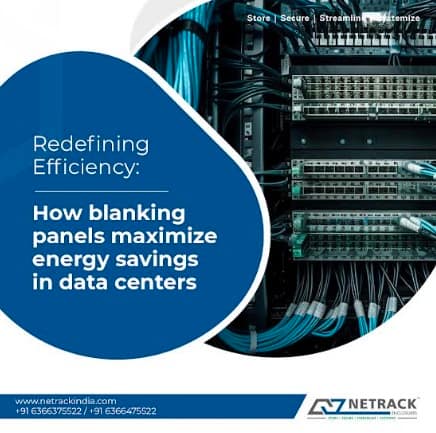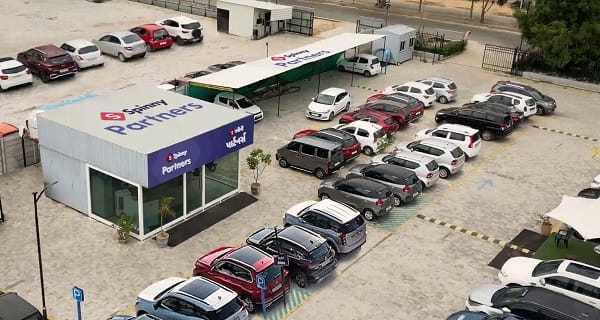Redefining Efficiency: How Netrack Blanking Panels Maximize Energy Savings in Data Centers

The growing importance of data centers and the critical role they play in organizations have started to define the requirement of data center solutions across industries. As a part of data center solutions, the focus is on implementing energy-efficient cooling systems for the mission-critical equipment hosted by the data centers, effective airflow management, and efficient data center functioning with zero downtime.
Redefining Efficiency: How Netrack Blanking Panels Maximize Energy Savings in Data Centers
The data center solutions that use renewable energy sources, and advanced hardware optimization techniques help with the green initiative to reduce carbon footprints and in that way, they contribute to the cause of sustainability and eco-friendly approach.
Enhancing cooling efficiency with blanking panel
As a part of the energy-saving drive, Netrack recommends blanking panels for all data centers to effectively manage airflow and thermal control. This is possible because, blank panels are installed in unused rack spaces within data centers. They act as barriers, preventing hot exhaust air from escaping and recirculating into the front of the server cabinets. This containment of hot air ensures that the cooling system doesnt have to work harder to maintain the desired temperature, leading to energy savings and higher efficiency.
By isolating hot and cold air, the blanking panels separates the two allowing the cooling system to focus on the cooling efficiency of the hot air that is generated by servers, rather than struggling to maintain the mixed temperatures. As a result, the cooling system operates more efficiently, reducing energy consumption. This is how blank panels contribute to maintaining a stable and consistent temperature within the data center preventing temperature fluctuations that could lead to cooling system inefficiencies, frequent HVAC cycling, and increased energy consumption.
Key to airflow optimization
Properly installed blanking panels ensure efficient airflow within the data center. This ensures airflow optimization by letting the cool air reach the servers while the hot air is efficiently expelled from the outlet, reducing the need for additional cooling. In fact, without blanking panels, overcooling in certain areas of the data center is common. This overcooling not only wastes energy but can also lead to hot spots in certain areas. Blank panels help distribute cooling more evenly, reducing the need for excessive cooling in specific regions.
Advantage of blanking panels
Netrack further explains the importance of consistent and efficient cooling, facilitated by blanking panels, that helps to extend the lifespan of network cabinets and IT equipment. Along with lower energy consumption associated with manufacturing and disposal, this reduces the number of equipment and server replacements.
By improving the overall efficiency of the cooling system, blanking panels contribute to the energy-efficient operation of data centers. Along with reducing electricity consumption, it also lowers the carbon footprint of data center operations.
About Netrack
Netracks innovative cooling solution, which includes the use of blanking panels, offers stability and sustainability to data centers. The comprehensive design includes filler panels, also known as rack spacers that are strategically placed between server racks to prevent the mixing of hot and cold air. Netracks commitment to efficient airflow management and temperature control contributes to the overall robustness of data centers and their ability to meet the demands of the modern digital landscape.
Meta description
Netracks blanking panel solution helps to maintain the desired temperature and pressure levels, preventing thermal damage to servers and equipment, ensuring uninterrupted data center operations.





